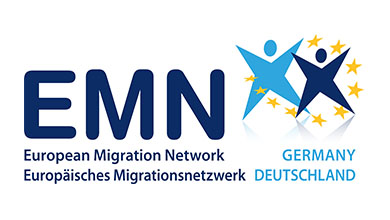The Granting of Non-EU Harmonised Protection Statuses in Germany ,
 Source: BAMF
Source: BAMF
Working Paper 30 provides a systematic overview of the different forms of protection available in Germany for reasons of international law or for humanitarian or political reasons. These include forms of protection for foreign nationals who apply for asylum, but also other protection statuses such as the “admission from abroad” or the granting of a residence permit in cases of hardship.
High relevance of European law on protection
The main focus of the study is the question to what extent the granting of protection in Germany has been "europeanised" and is now based on European law, and to which degree national legal bases still matter. The conclusion is that among those forms of protection, which are a component of asylum procedures, European norms take on greater significance than national law. This is particularly true for the granting of refugee status in accordance with the Geneva Convention, but also for certain forms of "subsidiary protection".
Nevertheless, the prevailing national forms of protection, some of which are independent of any asylum procedures being carried out, continue to fill important functions. They constitute sensible elements to complement European regulations, thus contributing to an effective system of protection. In this context, however, further developments might be considered, such as for instance improvements regarding the "grandfather clause" for persons whose removal has been suspended over a longer period of time, the introduction of a permanent resettlement programme for refugees or enhanced protection for victims of forced marriages.
Contribution to European comparative study
This Working Paper was written as the German contribution to a comparative study entitled "The Different National Practices Concerning the Granting of Non-EU Harmonised Protection Statuses", which is conducted in the framework of the European Migration Network (EMN). In conjunction with the country reports produced by EMN Contact Points in the other EU Member States, the study aims at improving the awareness as regards the granting of protection in Europe as well as to identify any deficits and options for policy reform.
Dr. Bernd Parusel

